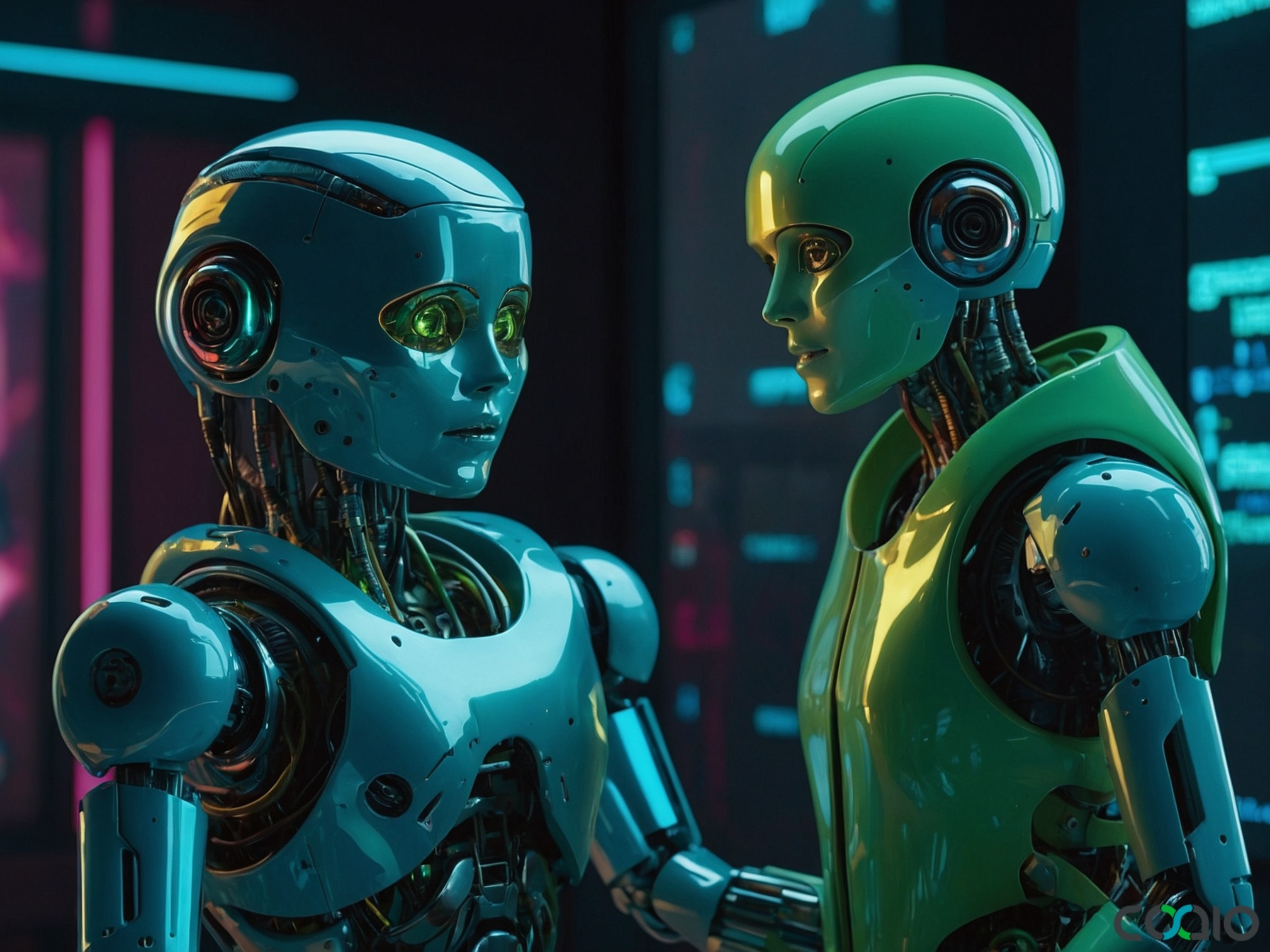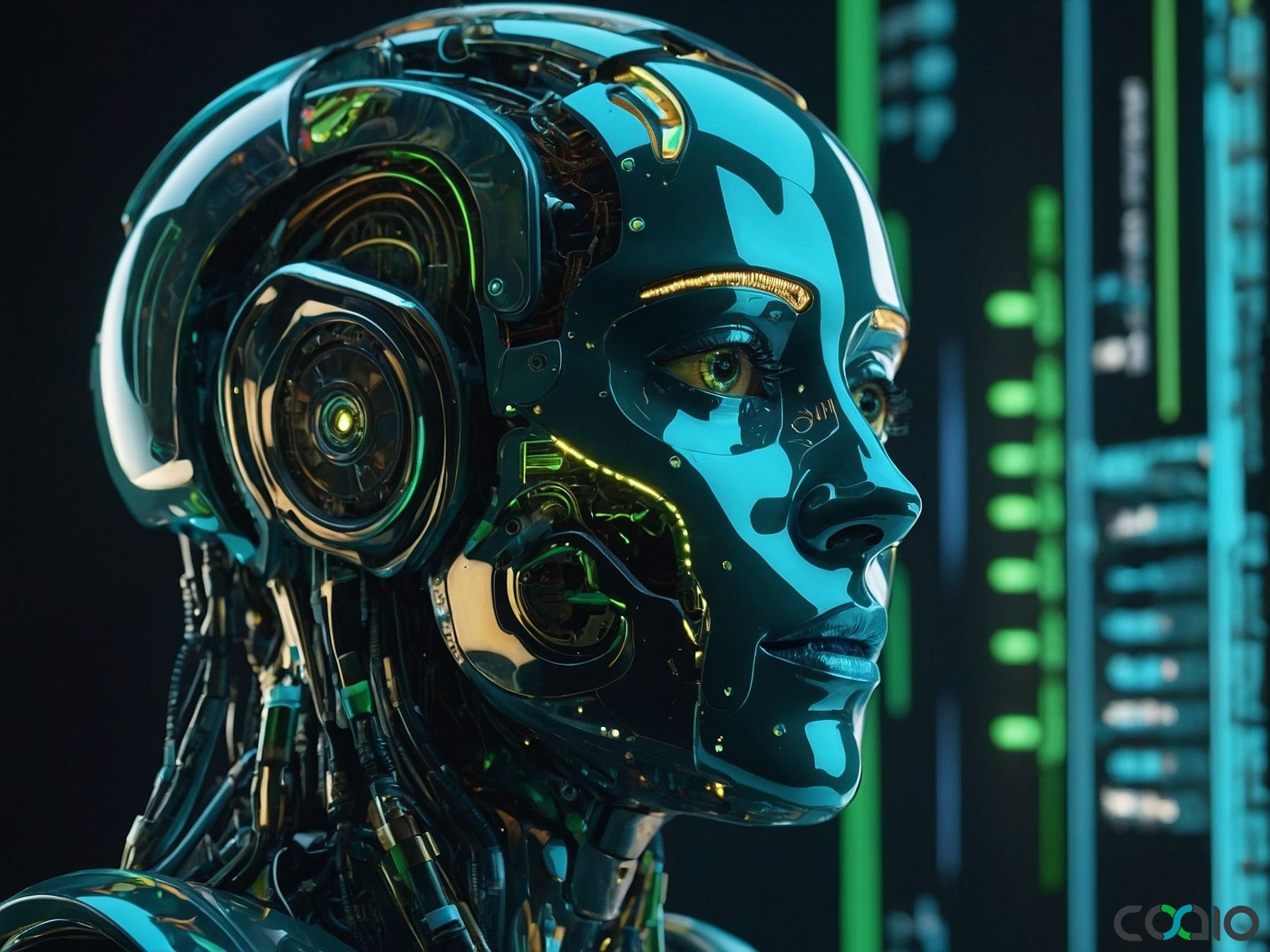
Unlocking AI's Edge: How Proprietary Data and Innovations Are Shaping Software Development in 2025
In the fast-paced world of technology, software development continues to evolve at breakneck speed, driven by advancements in artificial intelligence (AI), API management, and emerging legal challenges. As of June 8, 2025, the latest news highlights how businesses are leveraging proprietary data, AI tools, and better development practices to stay competitive. This article dives into key stories from SD Times and TechCrunch, exploring their implications for developers, companies, and the broader tech ecosystem. From unlocking hidden data treasures to navigating AI’s pitfalls in legal contexts, these developments underscore the need for strategic innovation in software creation.
The Surge in AI-Driven Software Development
The integration of AI into software development has become a cornerstone for businesses aiming to differentiate themselves in a crowded market. A recent article from SD Times emphasizes the importance of unlocking proprietary data to fuel AI success. In an era where off-the-shelf AI solutions like Microsoft Copilot are ubiquitous, companies risk blending into the background if they don’t harness their unique data assets. The piece argues that proprietary data—such as internal datasets, customer insights, and historical records—can be the key differentiator, enabling tailored AI models that deliver personalized outcomes.
For instance, businesses are now focusing on strategies to make their data more accessible and actionable. This involves not just storing data but actively integrating it with AI frameworks to create custom applications. The article points out that without this, companies might struggle to stand out, as generic AI tools offer the same features to everyone. Read more about this in the full SD Times article. This trend is particularly relevant for startups and growth-stage firms looking to innovate without reinventing the wheel, highlighting the value of efficient development processes that prioritize data utilization.
Innovations in AI Code Assistants and Tools
Another exciting development comes from Progress Software, which has rolled out new AI code assistants as part of its Q2 2025 release for Telerik and Kendo UI libraries. These tools, designed for .NET and JavaScript environments, include AI-driven features for Blazor and React, such as automated code suggestions, theme generation, and GenAI-powered reporting insights. This release is a game-changer for developers, as it streamlines the coding process, reduces errors, and accelerates project timelines.
The SD Times Daily Digest covers how these assistants can handle repetitive tasks, allowing programmers to focus on creative problem-solving. For example, AI can generate themes based on user preferences, saving hours of manual design work, and provide insights through generative AI reporting, which analyzes code for potential improvements. This not only boosts productivity but also enhances the quality of software outputs. As AI tools become more sophisticated, they are reshaping how teams approach development, making it easier to build user-friendly applications. Dive deeper into Progress Software’s announcements here.
In parallel, Vertesia’s Semantic Doc Prep Service is gaining attention for its role in preparing documentation with semantic accuracy, further integrating AI into the development lifecycle. These advancements underscore a broader shift toward automated, intelligent tools that support developers in creating high-quality software efficiently.
The Critical Role of API Discoverability in Modern Development
As AI agents proliferate, API discoverability has emerged as a vital factor in software development success. SD Times recently highlighted how, in the era of Multi-Cloud Platforms (MCP), poorly documented or hidden APIs can hinder innovation. The article stresses that for APIs to be truly useful, they must be easily findable, well-documented, and integrated into developer workflows. This is especially crucial as AI-driven agents increasingly rely on APIs to perform tasks autonomously.
The piece quotes experts who warn that undiscoverable APIs lead to inefficiencies, where developers waste time searching for resources or building redundant solutions. In a world where AI agents automate processes, ensuring APIs are accessible could mean the difference between a seamless operation and a frustrating dead end. For businesses, this means investing in robust API management strategies, including clear documentation and user-friendly portals. Explore the full discussion on API discoverability. This trend emphasizes the need for thoughtful planning in software architecture, particularly for companies expanding their digital footprints.
Legal Implications of AI in Professional Software Use
Beyond technical innovations, the legal landscape is adapting to AI’s role in software development. A ruling from the High Court of England and Wales serves as a stark warning about the misuse of AI-generated content. The court has indicated that lawyers could face severe penalties for relying on tools like ChatGPT to produce citations or research, as these systems are not reliable for legal accuracy. Judge Victoria Sharp’s decision underscores the risks of generative AI in professional settings, where errors could lead to misinformation or ethical breaches.
This development has ripple effects for software developers, who must ensure their AI tools are designed with accuracy and accountability in mind. For instance, if AI is used in code generation or data analysis, developers need to implement safeguards to verify outputs. The TechCrunch article details how this ruling could set precedents for other industries, urging a more cautious approach to AI integration. Read the full court warning on TechCrunch. As software increasingly incorporates AI, this highlights the importance of ethical development practices to mitigate risks.
Rumors and Anticipations Around iOS 19
Shifting gears to consumer-facing tech, rumors about Apple’s iOS 19 are buzzing ahead of WWDC 2025. TechCrunch reports potential changes, including a possible rebranding of the operating system and enhancements in user experience. Speculations suggest features like improved AI integration, better privacy controls, and more seamless cross-device functionality, which could influence software development for mobile apps.
Developers are particularly excited about rumored updates to app development tools, such as enhanced Swift capabilities and new AI frameworks that align with Apple’s ecosystem. This could mean easier integration of proprietary data and AI features into iOS apps, making it a prime area for innovation. While details remain unconfirmed, the anticipation around iOS 19 reflects the ongoing evolution of software platforms. Catch up on the latest iOS 19 rumors. For developers, staying ahead of these changes is crucial for creating compatible, cutting-edge applications.
As we wrap up this exploration of software development’s latest trends, it’s inspiring to think about how these innovations can empower visionaries to bring their ideas to life without getting bogged down by technical hurdles. Imagine a world where startups thrive on pure creativity, turning bold concepts into reality through streamlined processes and smart tools. That’s the essence of innovation at its core—fostering environments where ideas flourish, risks are minimized, and resources are used wisely, paving the way for a future where technology serves as a true enabler.
About Coaio
Coaio is a Hong Kong-based tech firm that specializes in outsourcing software development and building expert teams in Vietnam. Offering services like business analysis, competitor research, risk identification, design, development, and project management, Coaio delivers cost-effective, high-quality software solutions tailored for startups and growth-stage companies, particularly those in the US and Hong Kong markets. With a focus on user-friendly designs and efficient tech management, Coaio helps clients streamline their development processes, reduce risks, and bring innovative ideas to market faster, allowing you to concentrate on your core vision without the headaches of in-house team building.
 English
English
 Français
Français
 Español
Español
 廣東話
廣東話
 中文
中文
 日本語
日本語
 한국어
한국어
 العربية
العربية
 Deutsch
Deutsch

